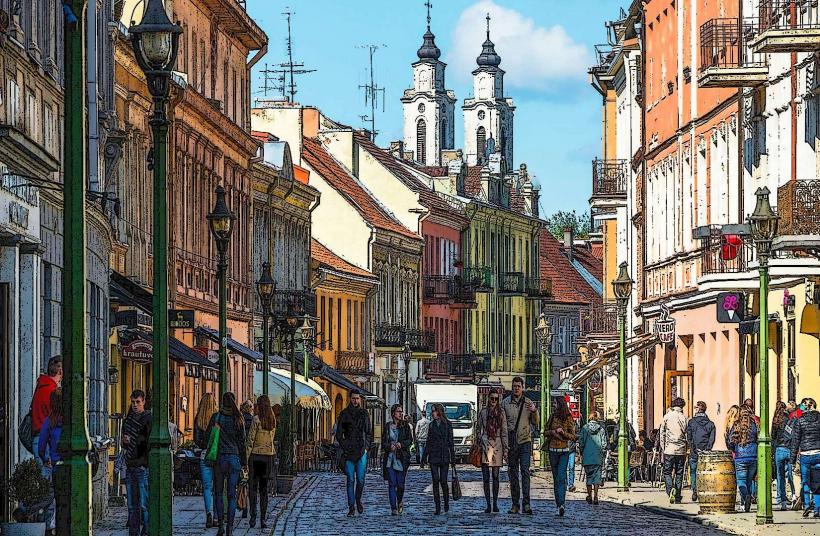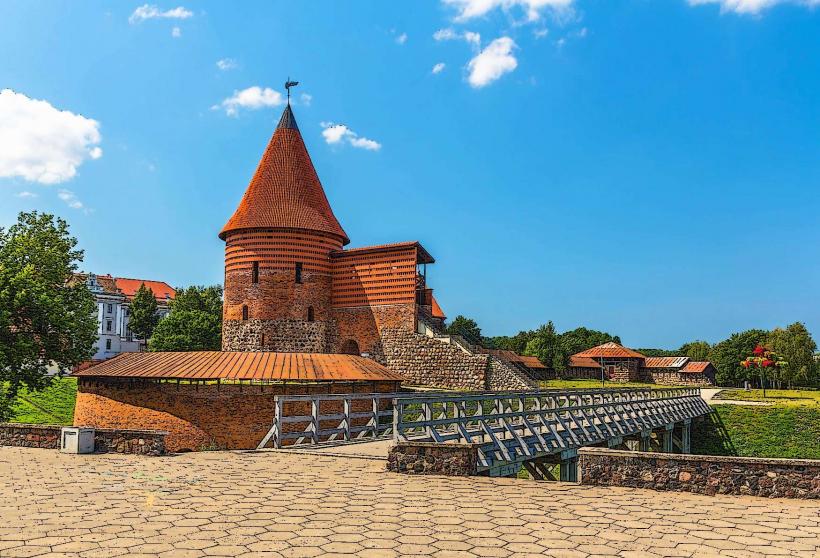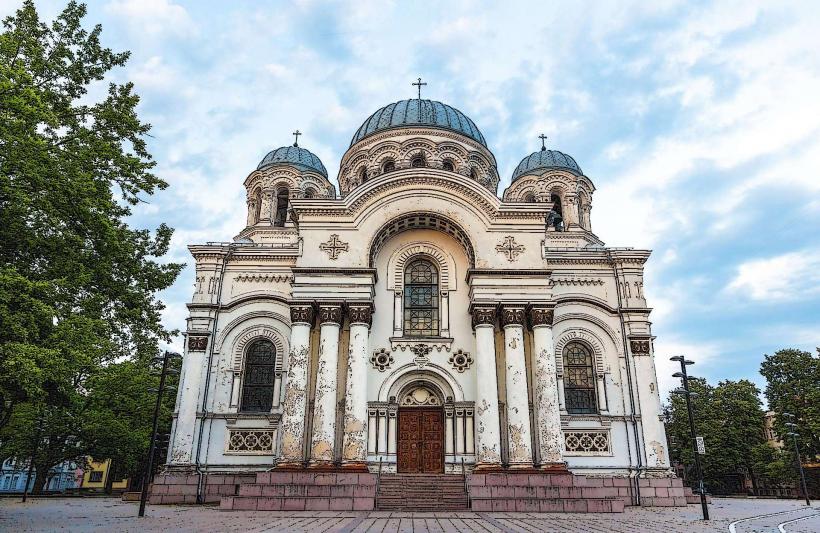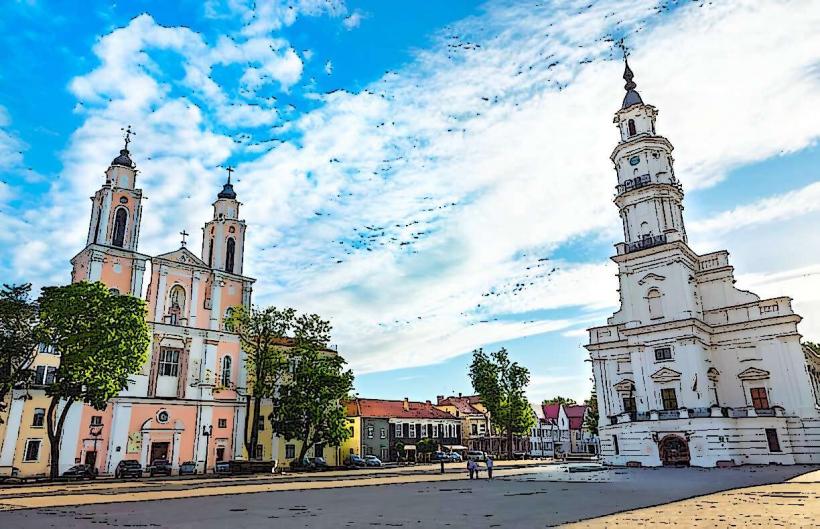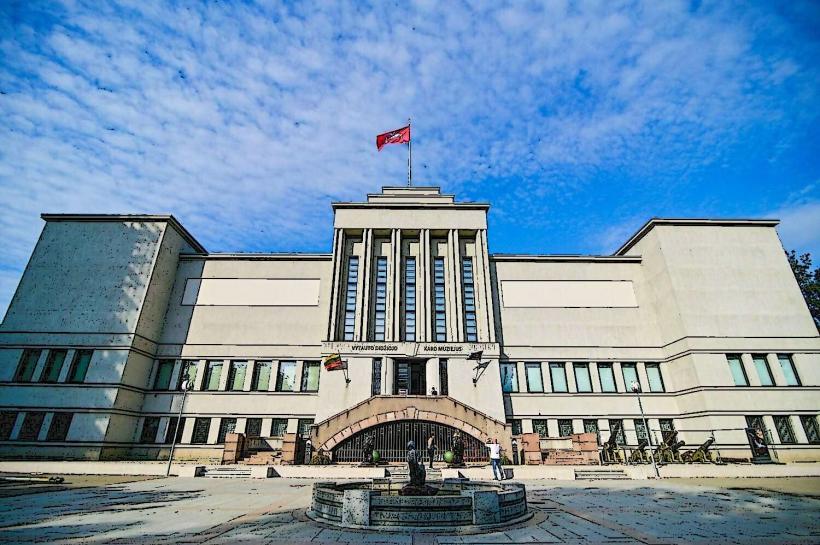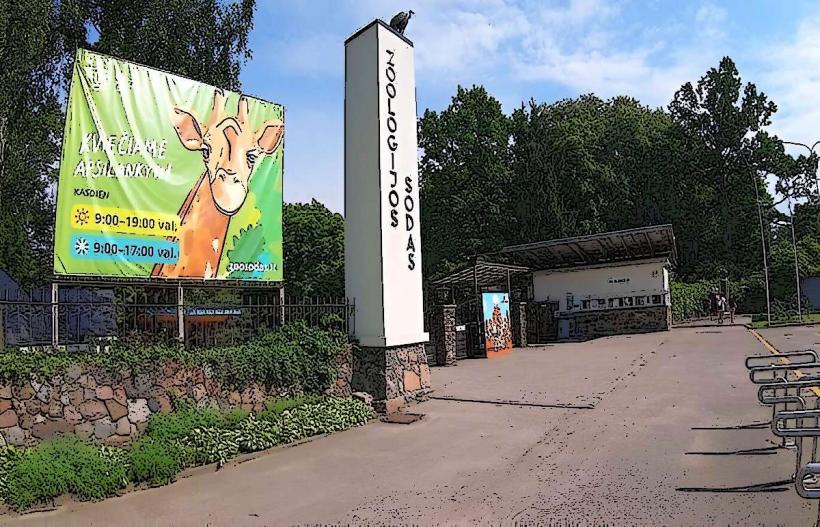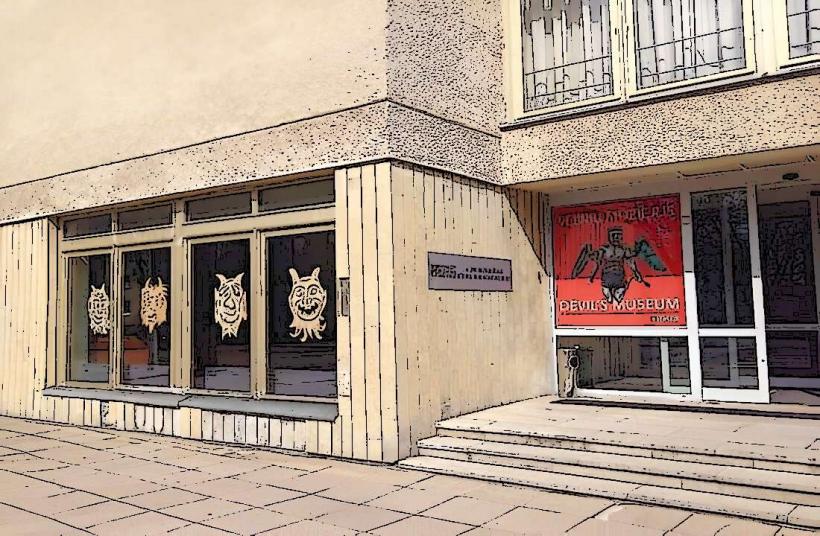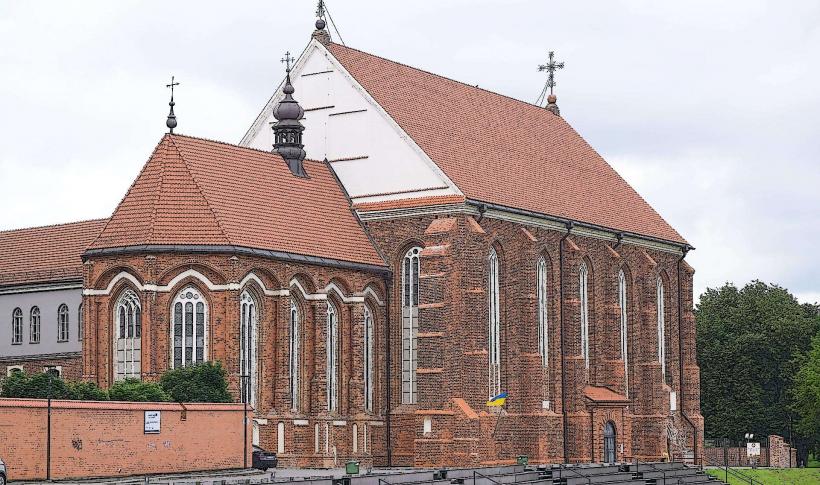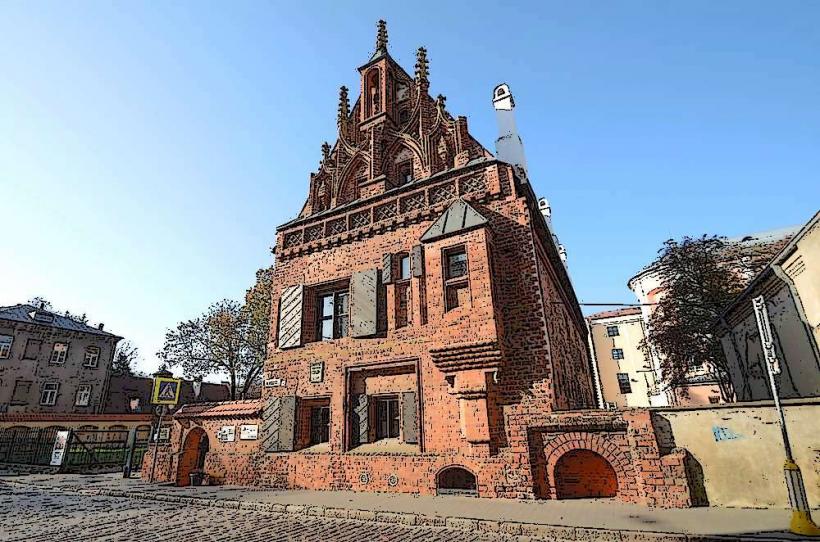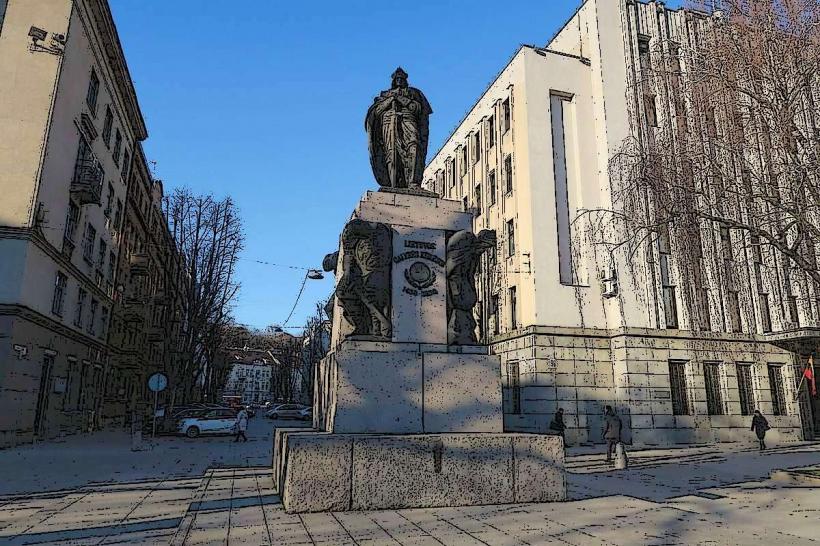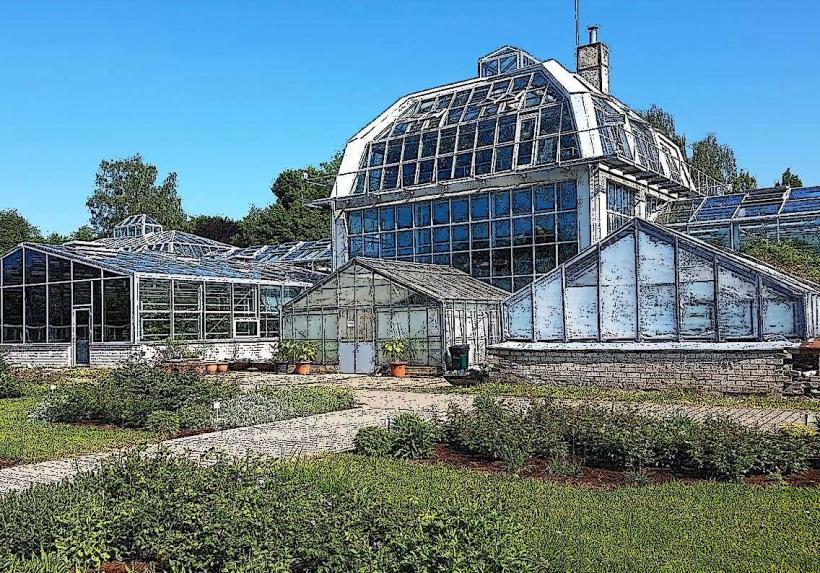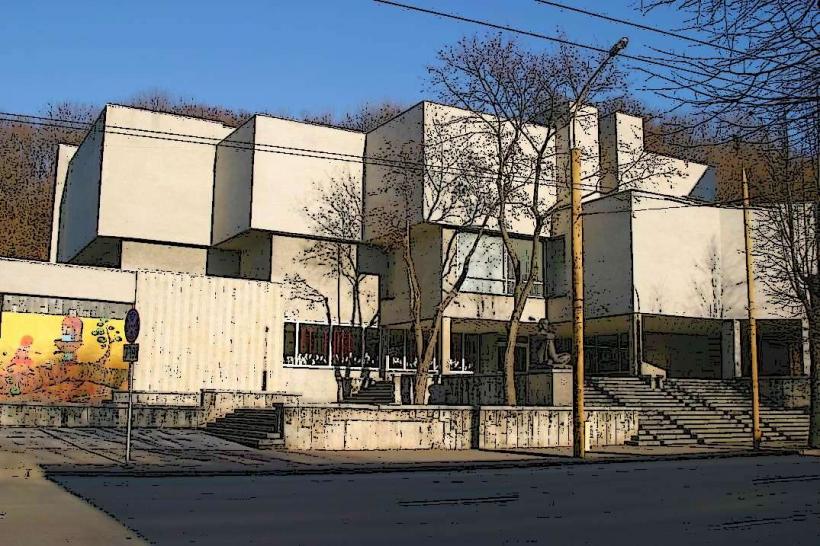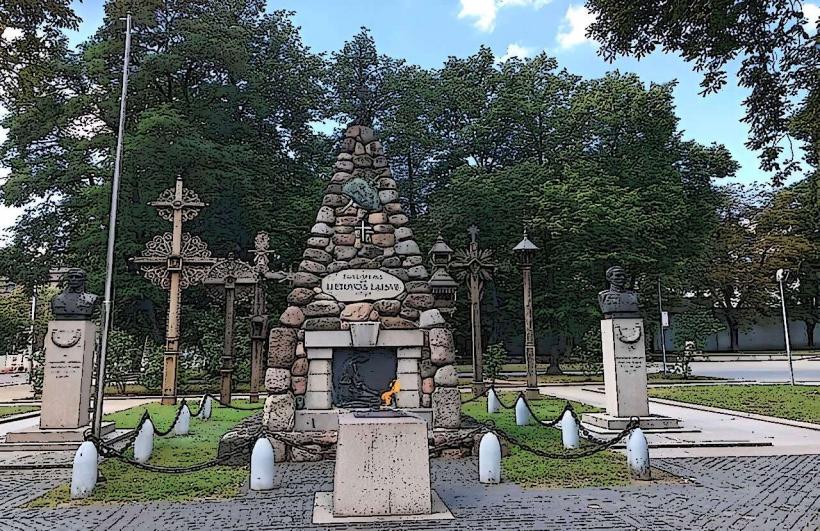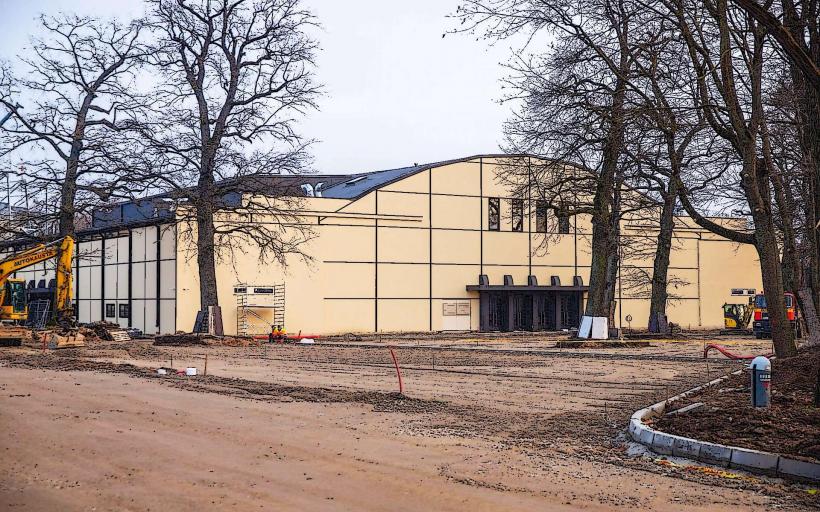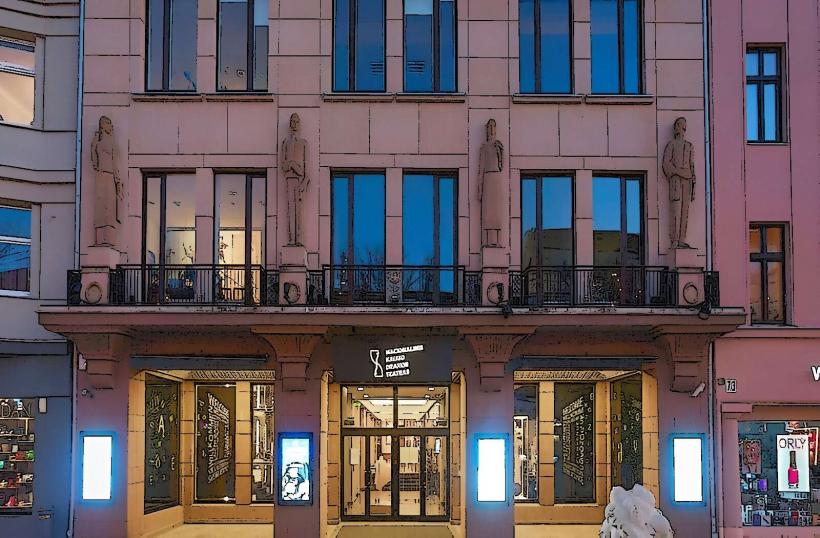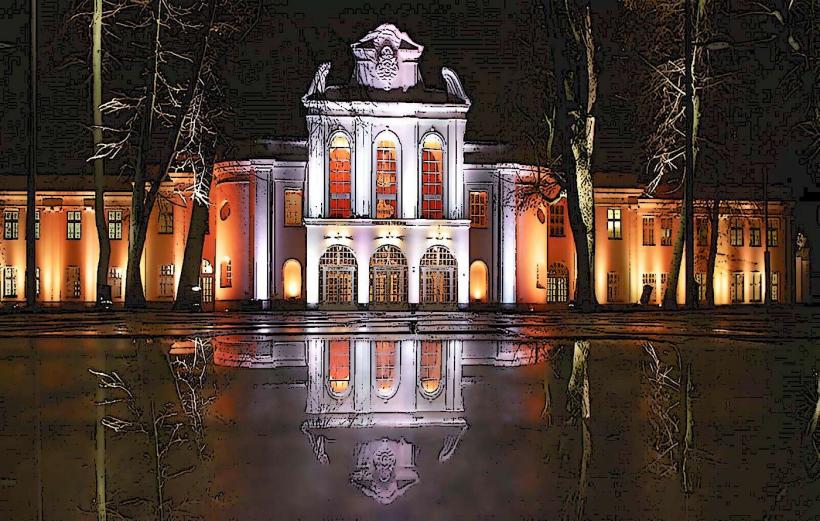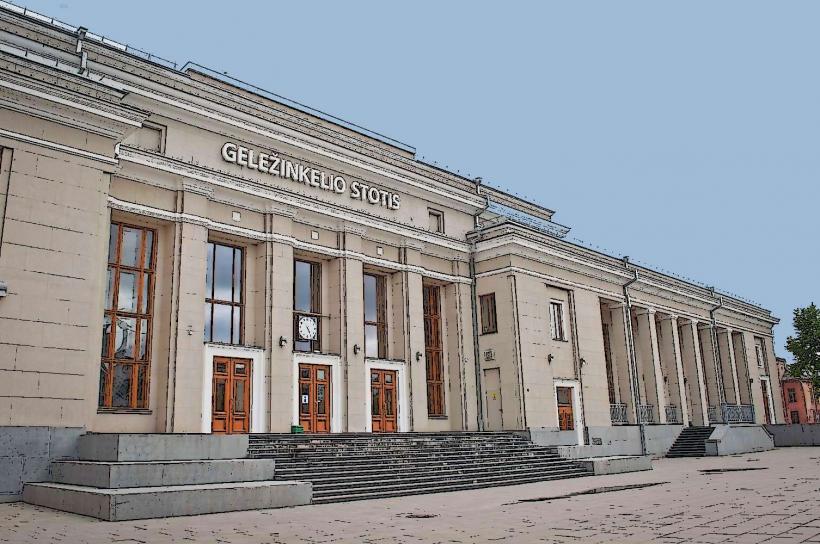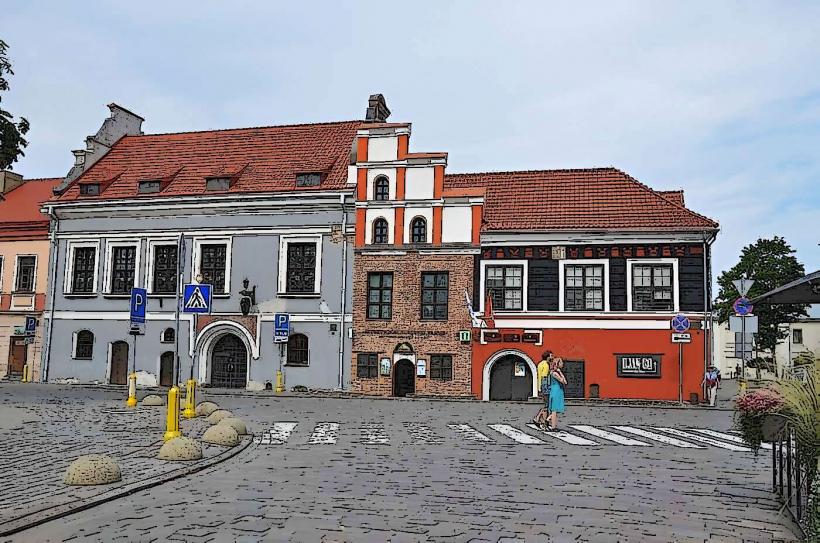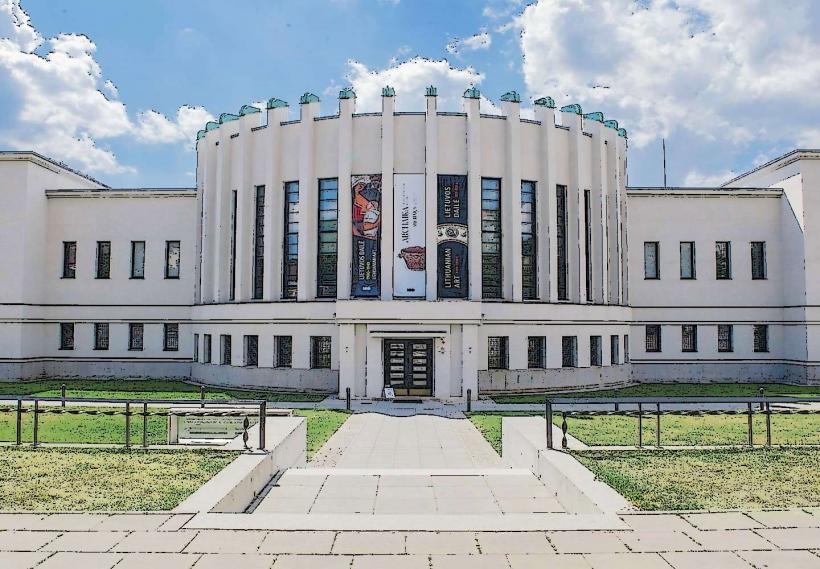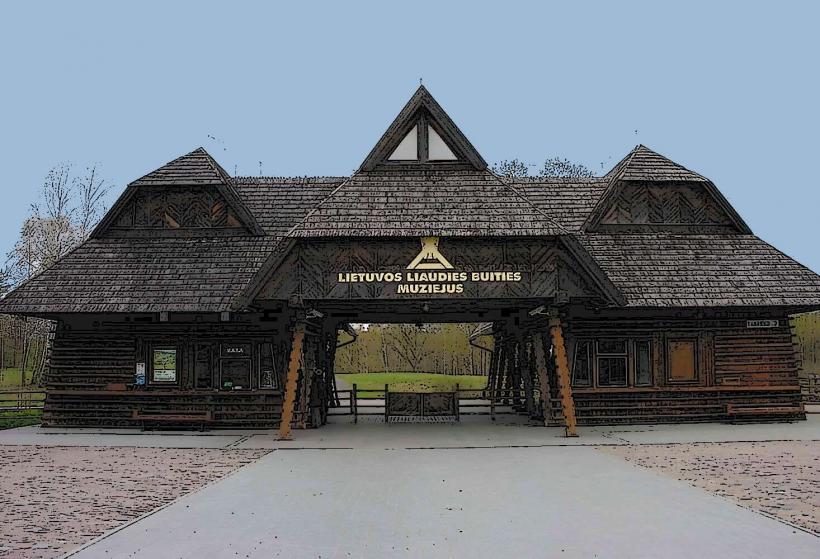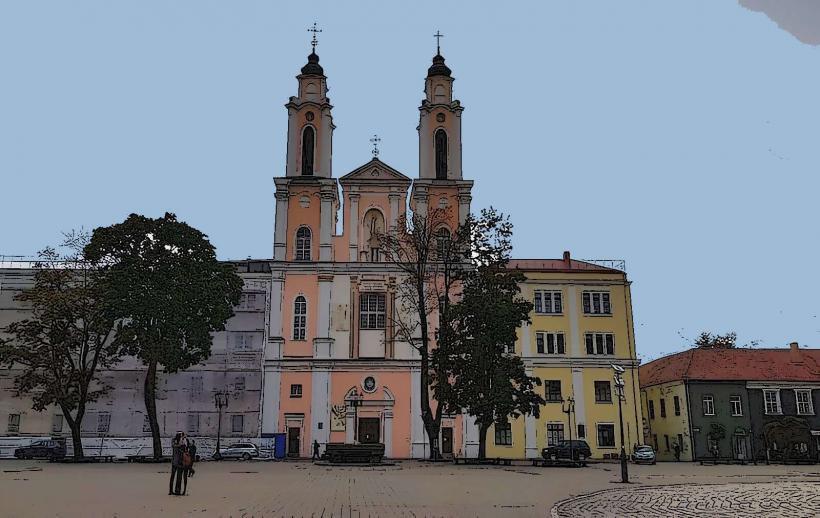Information
Landmark: Maironis Lithuanian Literature MuseumCity: Kaunas
Country: Lithuania
Continent: Europe
The Maironis Lithuanian Literature Museum (Maironio lietuvių literatūros muziejus) is one of the most significant cultural institutions in Kaunas, dedicated to the life and works of the renowned Lithuanian poet Maironis, as well as the broader history of Lithuanian literature. The museum provides insight into Lithuania's literary heritage, especially during the 19th and early 20th centuries.
Overview of Maironis:
- Maironis (1862–1932), whose real name was Jonas Mačiulis, is considered one of the most important figures in Lithuanian literature. He is often called the "national poet" for his contributions to the Lithuanian national identity and his role in the Lithuanian National Revival. His poetry, which blends romanticism with national themes, played a key part in the development of modern Lithuanian literature.
Museum's History:
- Founding: The Maironis Lithuanian Literature Museum was established in 1936, just a few years after the poet's death, in his former residence. The museum is located in a 19th-century building that once served as Maironis’ home. This house is where he lived for a significant portion of his life, and it became a symbol of his literary legacy. The museum not only honors Maironis but also serves as a center for the preservation and promotion of Lithuanian literary traditions.
Architecture:
Location: The museum is located in the heart of Kaunas Old Town, a short walk from major landmarks like the Kaunas Town Hall and Laisvės alėja (Freedom Avenue). The building is a classic example of 19th-century Lithuanian urban architecture and serves as a fitting backdrop for the museum's exhibitions.
Building Features: The building itself is a charming example of neo-Renaissance architecture. The facade is adorned with classical elements, and the interior spaces retain much of the atmosphere from when Maironis lived there. The museum’s layout includes several rooms that have been restored to reflect the poet’s lifestyle and the cultural environment of his time.
Museum Exhibitions:
The museum’s exhibits cover the life and work of Maironis as well as the evolution of Lithuanian literature during the period of his activity. The museum is a place where visitors can learn about the intellectual, cultural, and political movements that shaped Lithuania in the late 19th and early 20th centuries.
Maironis' Personal Life: Exhibitions focus on Maironis' early life, education, and literary career, highlighting his poetry, influences, and contributions to Lithuanian culture. The museum displays manuscripts, first editions of his books, personal belongings, and photographs that help visitors connect with the poet’s personal and creative life.
Lithuanian Literature Collection: The museum also features a broader collection dedicated to Lithuanian literature, especially the works of national revival poets and prose writers. It showcases the historical development of Lithuanian literature, with a focus on the period of Lithuanian national awakening.
Literary Movement: The museum also explores the Lithuanian National Revival and the role of literature in the formation of Lithuanian national identity. Maironis, through his poems, played a vital role in inspiring national pride and was a vocal advocate for Lithuanian independence from the Russian Empire.
Highlights of the Museum:
Maironis’ Poetry: Visitors can read original poems by Maironis, including some of his most famous works like “Pavasario balsai” (“Voices of Spring”) and “Apreiškimas Lietuvai” (“The Proclamation to Lithuania”). His poems are filled with themes of nature, romanticism, and nationalism.
Personal Belongings: The museum features personal items that belonged to Maironis, including furniture, letters, and personal effects, offering a glimpse into the poet’s life and character.
Historical Context: The museum also gives insight into the historical and political context of Lithuania during Maironis' time, such as the efforts to preserve and promote the Lithuanian language and culture during the Russian Empire's oppressive rule.
Lithuanian Literary History: The museum’s exhibitions delve into the works of other influential Lithuanian writers, giving visitors a sense of the broader literary landscape of Lithuania during the 19th and 20th centuries.
Cultural Significance:
Educational Role: The Maironis Lithuanian Literature Museum plays a key role in preserving the heritage of Lithuanian literature and educating the public about the importance of literary figures such as Maironis in the shaping of Lithuanian national consciousness. It regularly hosts lectures, workshops, and literary events to engage the community with the country’s literary history.
Research Center: The museum is also a resource for researchers and scholars interested in Lithuanian literary history. It provides access to rare books, manuscripts, and archival materials related to Lithuanian literature and Maironis' works.
Visitor Experience:
Guided Tours: The museum offers guided tours that give visitors a comprehensive understanding of Maironis' life, his literary works, and the historical context of the Lithuanian National Revival. The tours are available in multiple languages, including English.
Events and Programs: The museum hosts regular events, such as poetry readings, literary discussions, and special exhibitions related to Lithuanian writers. The museum also organizes events to commemorate key moments in Lithuanian literary history, like the anniversaries of Maironis’ birth or death.
Atmosphere: The museum maintains a peaceful and contemplative atmosphere, ideal for those interested in literary history. The intimate setting of the museum, housed in Maironis' former home, adds to the feeling of connection with the poet’s life and works.
Conclusion:
The Maironis Lithuanian Literature Museum is an essential destination for anyone interested in Lithuania's literary history and the legacy of Maironis, one of the country’s most beloved poets. The museum offers an enriching experience, shedding light on the life of the poet and the broader cultural movements of Lithuania’s past. Whether you are a fan of Lithuanian literature or simply curious about the country’s literary heritage, this museum provides a meaningful way to explore the works and influence of Maironis and his contributions to Lithuania’s national identity.

